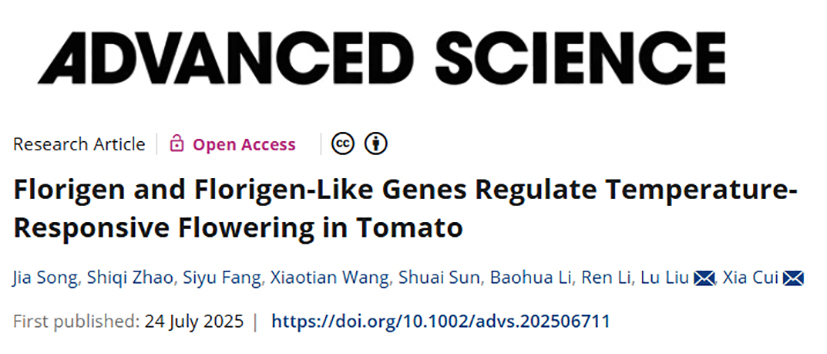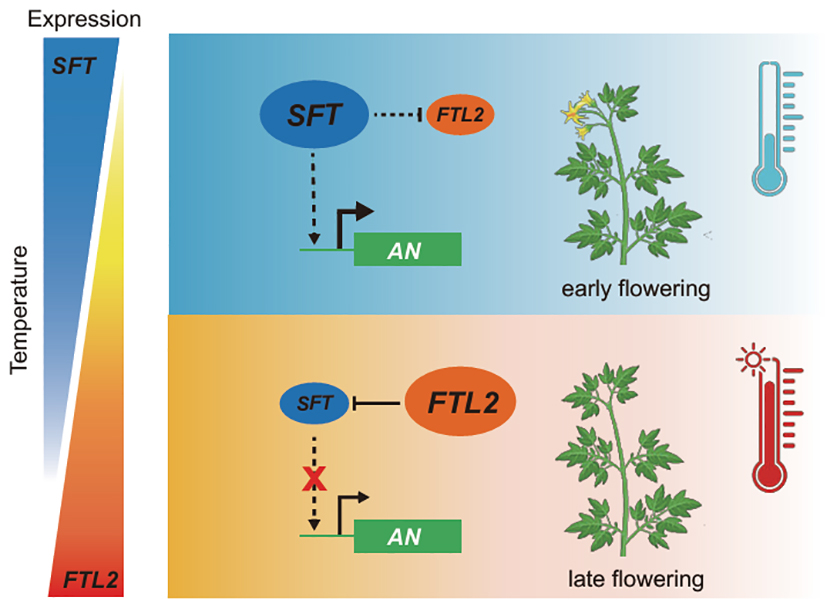Recently, the Molecular Improvement of Quality research group at the Institute of Vegetables and Flowers (IVF), Chinese Academy of Agricultural Sciences (CAAS), published a research article titled "Florigen and florigen-like genes regulate temperature-responsive flowering in tomato" online in Advanced Science (Impact Factor: 14.1). This study reveals the molecular mechanism by which the florigen-like protein FTL2 and the florigen protein SFT precisely integrate temperature and photoperiod signals in the shoot apical meristem (SAM) to regulate seasonal flowering in tomato.

The ability of plants to perceive temperature changes and flower during suitable seasons is crucial for their survival and reproduction. This study discovered that the florigen-like protein FTL2 and the florigen protein SFT antagonistically regulate high-temperature flowering in tomato under short-day conditions within the SAM. Specifically, under short-day conditions, high temperature specifically induces the expression of the flowering suppressor gene FTL2 in the SAM, leading to delayed flowering in tomato under heat stress. The research found that FTL2 can directly bind to the flowering promoter gene SFT and inhibit its transcription. The reduced expression of SFT in the SAM under high temperature is also a key factor causing delayed flowering. Conversely, under short-day conditions, high expression of SFT in the SAM at normal temperatures suppresses FTL2 expression, thereby promoting flowering.
The mutual antagonistic regulation between FTL2 and SFT enables tomato to sense temperature changes and ensures flowering occurs under optimal conditions. These findings not only elucidate the molecular mechanism of temperature perception in tomato flowering regulation but also provide important genetic resources for breeding tomato varieties with enhanced heat adaptability.

The research was led by first author Jia Song, a visiting Ph.D. candidate at IVF-CAAS, with corresponding authors Researcher Xia Cui from IVF-CAAS and Associate Professor Lu Liu from Shanghai Jiao Tong University. Professor Baohua Li from Northwest A&F University contributed to the work, while Professor Guosheng Xiong from Nanjing Agricultural University and Researcher Hong Yu from the Institute of Genetics and Developmental Biology, Chinese Academy of Sciences, provided valuable insights. Funding was provided by the National Key Research and Development Program of China (2021YFF1000103), the National Natural Science Foundation of China (32120103010), and the Shanghai Collaborative Innovation Center of Agri-Seeds (ZXWH2150201).
Link:https://advanced.onlinelibrary.wiley.com/doi/10.1002/advs.202506711